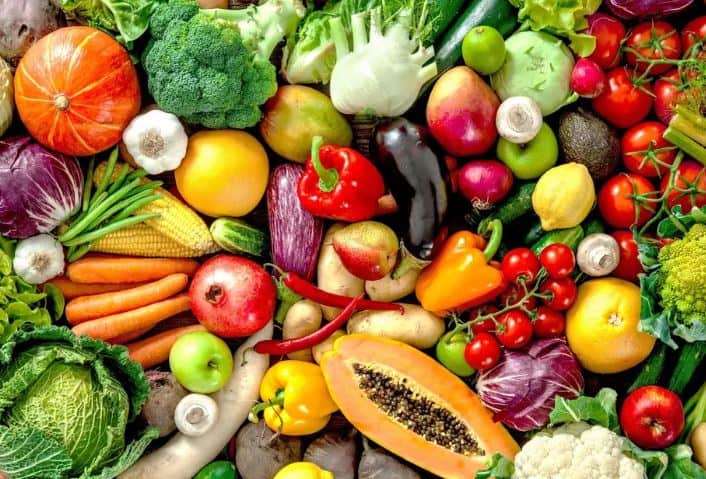
While some of it comes down to biology and personal taste, the vast majority of our eating habits are learned through modeling and environmental factors. As a parent and primary role model, your own eating habits play an integral function in shaping your child’s food consumption practices. If you can instill positive habits early on in life, it’s likely your child will enjoy a long, healthy life of wholesome eating habits as well.
When it comes to healthy consumption practices, research suggests setting aside meat-centered dishes in favor of more nuts, seeds, fruits, and vegetables. According to the Mayo Clinic, for example, plant-based diets are shown to reduce the risk of heart disease, stroke and diabetes. Meatless diets are also generally lower calorie and lower fat, which reduces the chances of obesity and other health complications.
Of course, transitioning to plant-based meals and snacks might seem a difficult feat if your child is already accustomed to eating meat. After all, many of the foods characteristically known to appeal to a child’s taste—cheeseburgers, pizza, hot dogs, etc.—are meat-centered dishes.
Thankfully, companies like Modern Meat have emerged to deliver wholesome plant-based meat alternatives. According to company CEO Tara Haddad, Modern Meat currently offers a range of meatless burgers, crumbles, ‘crab’ cakes, meatless meatballs, and sauces that will make your family’s transition towards a plant-based diet both easy and delicious. For parents who are eager to incorporate healthy plant-based lunches and snacks into their children’s lives, Tara Haddad has compiled the following tips and tricks.
Keep Meals and Snacks Consistent
When it comes to forming healthy eating habits, Tara Haddad believes that consistency is key. As it turns out, it’s not just what we put in our bodies that impacts our overall health, when we eat also plays an integral role in overall health. If left unaddressed, a child’s inclination towards irregular meal times and erratic snacking can eventually contribute to obesity, high blood pressure, and type 2 diabetes.
To promote healthier long-term habits, keep mealtimes and snacking consistent. Outside of avoiding future consequences, regularized eating schedules will also help keep your child’s hunger in check, ensuring they are truly ready to be nourished when mealtime rolls around. This, in turn, makes it much easier to introduce healthy plant-based food items. When children are eating to satiate hunger rather than fill cravings, they are far more likely to embrace healthy food options and adjust to more wholesome diets.
Model Healthy Eating Habits
Children are incredibly impressionable; there is just no denying it. As your children’s primary role model, you have tremendous influence over their perceptions and habits. That’s why Tara Haddad highlights the importance of modeling healthy eating habits. At the end of the day, it’s not enough to offer your children healthy plant-based foods—you need to be practicing wholesome eating habits as well.
When it comes to implementing plant-based diets, refrain from cooking separate meals as much as possible. While it might be necessary to add a little more spice or seasoning after your child’s portion is served up, it’s important that families consume the same core meals.
Outside of the obvious convenience factor (offering up a different meal to each family member can quickly become a logistical nightmare), eating the same food items as your child allows you to model healthy eating habits and begin establishing healthy, plant-based eating as the norm in your child’s life.
Stock Up on Healthy Snacks
While unchecked snacking practices can disrupt your child’s eating habits, healthy and scheduled snacking can help acclimate your child to a more wholesome diet. The key here, according to Tara Haddad, is to stock up exclusively on healthy snacks rather than junk foods. Food items like potato chips, sweets, and carb-loaded foods may technically be okay on occasion but keeping them in your home presents the problem of constant temptation. If your child knows that unhealthy options are in your home, they’ll be more resistant towards healthy, plant-based alternatives.
Instead, go all-in on healthy snacks; stock your refrigerator with a range of fresh fruits and vegetables that can be easily sliced into finger food. Smoothies, for example, can serve as an excellent sweet treat that’s equal parts tasty and healthy. Whole-grain cereal, hummus, hard-boiled eggs, and frozen fruit pops are other nutritious options.
Explore New Foods Together
According to Tara Haddad, the best way to encourage your child towards embracing healthy, plant-based lunches and snacks is to present the transition as an adventure rather than a burden. A wholesome diet isn’t a restriction—it’s an opportunity to try new restaurants, make new recipes, and find new favorite foods.
If your children are old enough, enlist their help in creating the family’s weekly meal plan and seek their input when shopping for wholesome snacks. Giving your kids agency in their own plant-based eating, when possible, will empower them to become engaged and involved with their own eating practices. Outside of encouraging them to embrace healthier habits in the moment, asking for input also allows children practice in making their own healthy eating decisions—a skill which will reward them for the rest of their lives.
Tara Haddad also recommends seeking out and trying restaurants in your area that offer plant-based meals. These days, more and more establishments cater to meatless diets, offering a wide range of plant-based meat alternatives and veggie dishes. For kids, visiting new restaurants isn’t just exciting—it also establishes plant-based eating as completely normal, which will help them embrace their new diet and begin developing more wholesome long-term habits.
You may be interested in: “More Information About Organic Superfood Powders To Stay Healthy”

